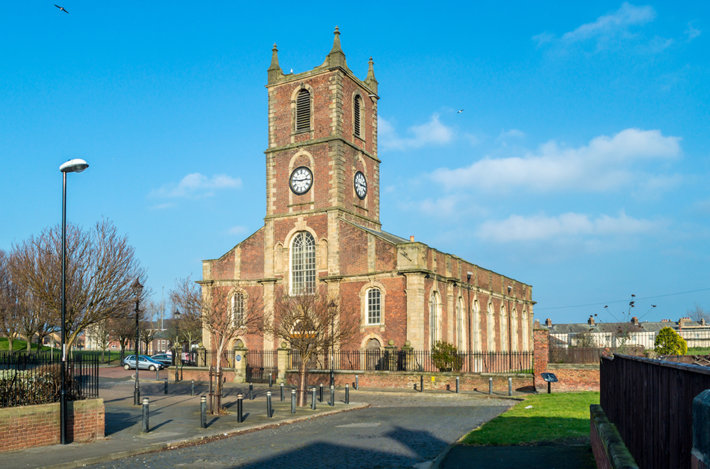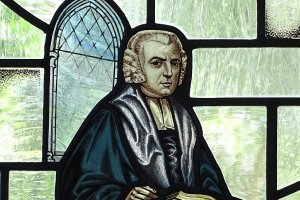A choirboy from a Victorian orphanage in the north of England wrote a letter asking not to be forgotten. And he hid the letter in a pew of the church he attended nearly 125 years ago. A British charity, intrigued by his plea, solved the mystery of who the boy was and incorporated his story into the legacy of the church.

The letter’s discovery created headlines around the UK when it was found by workers turning the Holy Trinity Church in Sunderland into an arts and events space.
Volunteers from Seventeen Nineteen, a British charity that is part of the Churches Conservation Trust and protects historic churches, decided to track down the identity of the child.
They discovered that the letter was written by William Elliott who was born on October 29, 1883. He was 13 when he wrote the note on August 11, 1897.
“Whoever you are that finds this paper, don’t tear it up or throw it away, keep it in remembrance of me, W. Elliott,” he wrote. “I was the leading boy of this choir. I love you if you love me.”
What the volunteers found was that Elliott's father, Thomas Duncan Elliott, an officer in the Mercantile Marines, drowned in a storm. Struggling after the tragedy, Elliott’s mother was forced to place her son in the orphanage when he turned 8.
Elliott received a good education there and by 1901 he was working as a solicitor’s clerk. The following year, at 19, he emigrated to the U.S., arriving in New York City.
Within months, he enlisted in the U.S. Navy, beginning a 42-year career. He served in the First World War and retired in 1939. Then, when the U.S. entered World War II in December 1941, Elliott re-enlisted and reached the rank of commander before retiring a second time in 1945.
Elliott was married three times and had two children. When he passed away at 84 in 1968 he was buried at Arlington National Cemetery in Washington, D.C.
“Ever since we found William’s letter, we have wondered what became of him,” said Tracey Mienie, a manager at Seventeen Nineteen. “And now, thanks to the work of people who were as touched by his story as we were, we know he went on to lead a full, rich life, serving his country and much loved by his family.”
A copy of Elliot’s letter has been framed and hung on a wall of the church, next to the pew where he penned it.
“He asked those reading it to make sure he wasn’t forgotten,” Mienie said. “And now he never will be.”
_______________
From its beginnings, the Church of Scientology has recognized that freedom of religion is a fundamental human right. In a world where conflicts are often traceable to intolerance of others’ religious beliefs and practices, the Church has, for more than 50 years, made the preservation of religious liberty an overriding concern.
The Church publishes this blog to help create a better understanding of the freedom of religion and belief and provide news on religious freedom and issues affecting this freedom around the world.
The Founder of the Scientology religion is L. Ron Hubbard and Mr. David Miscavige is the religion’s ecclesiastical leader.
For more information visit the Scientology website or Scientology Network.


